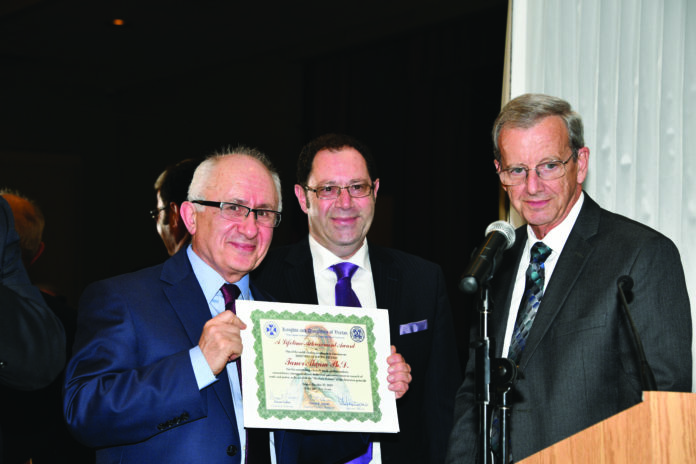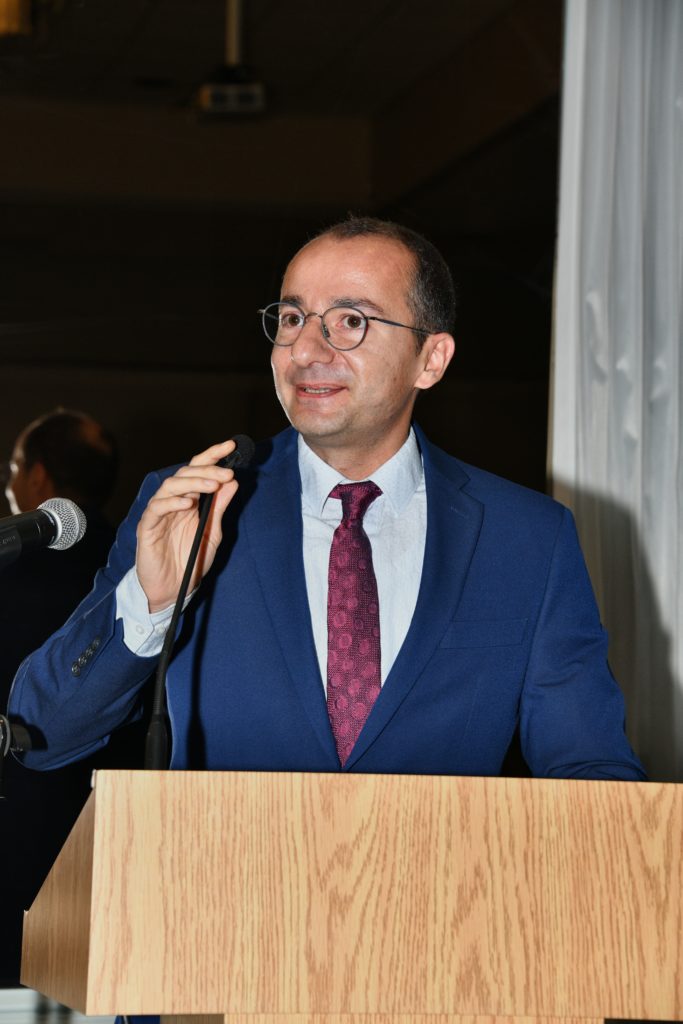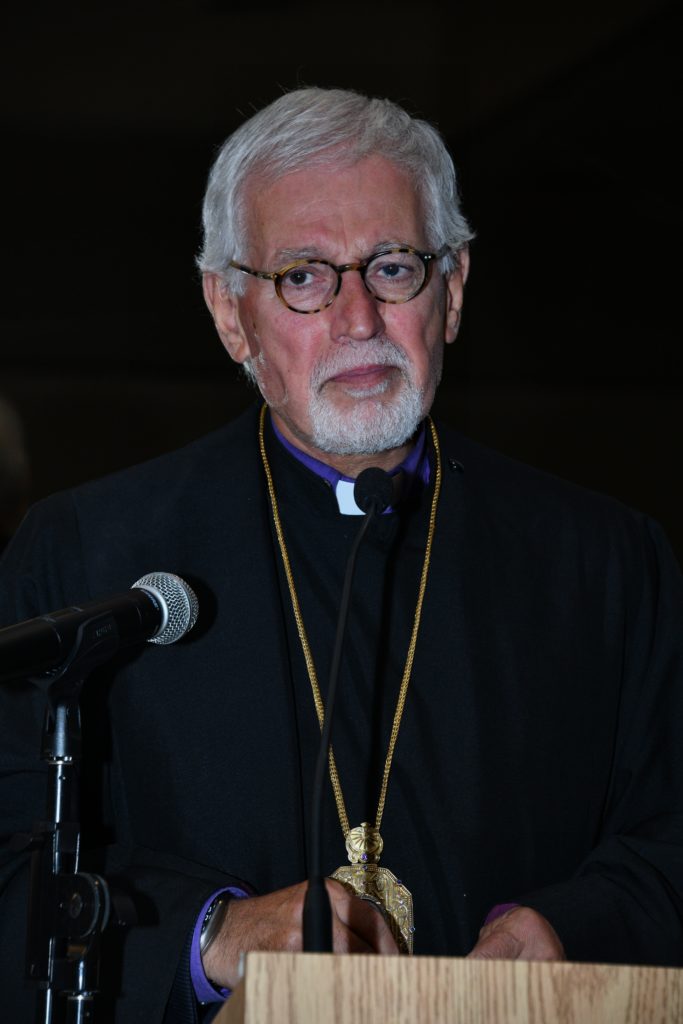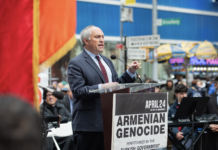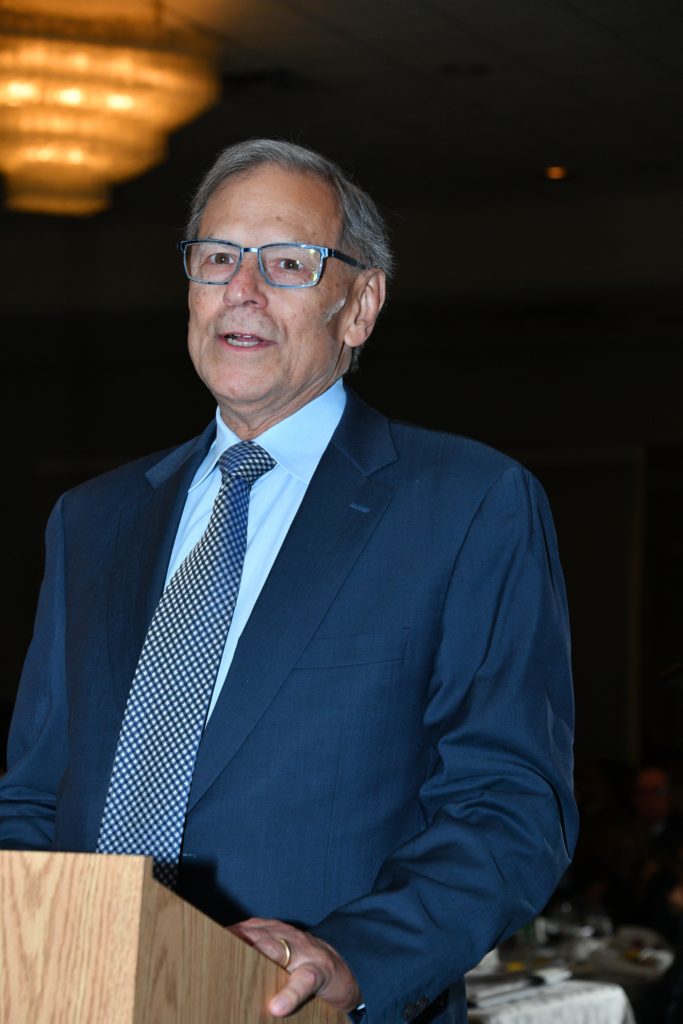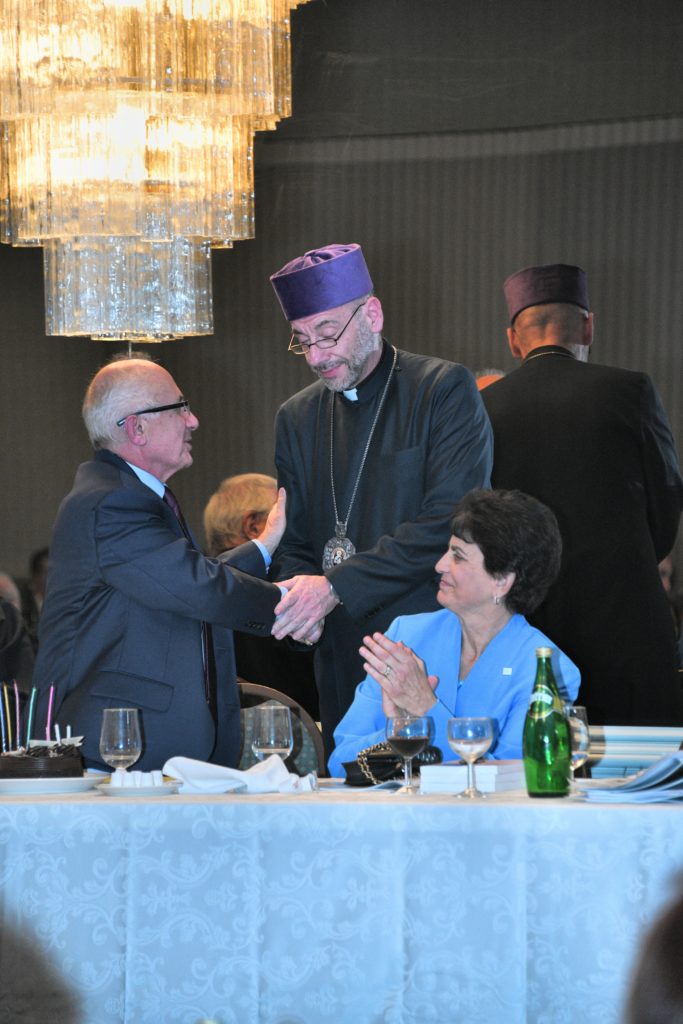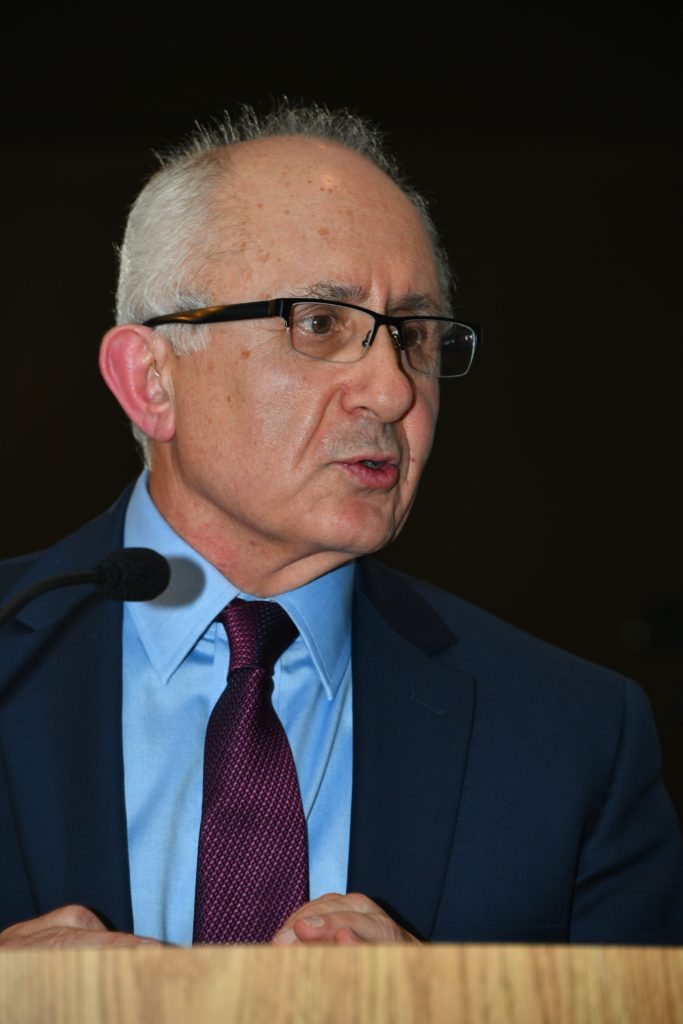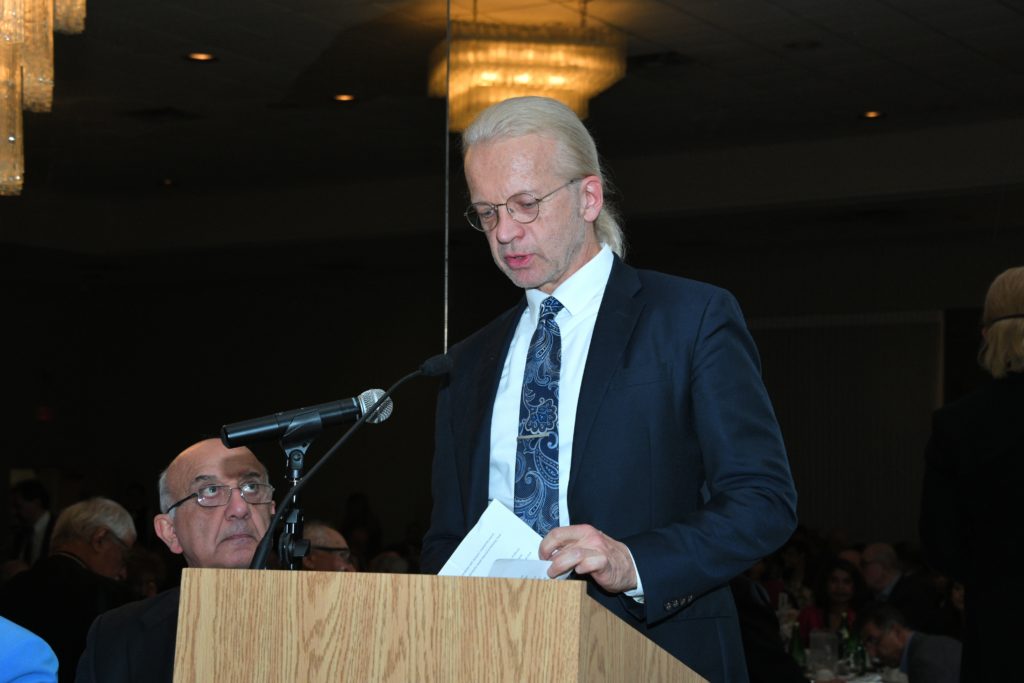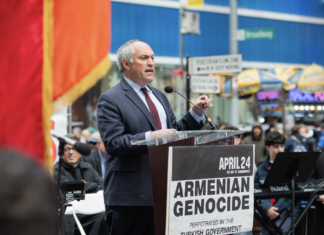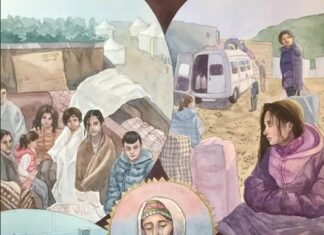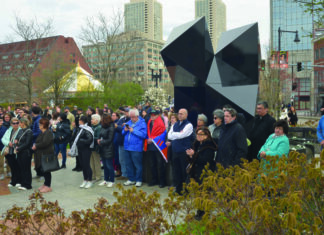FAIR LAWN, N.J. — Historian of the Armenian Genocide Taner Akçam was honored at a banquet organized by the Knights and Daughters of Vartan Times Square Armenian Genocide Commemoration Committee on October 25 at St. Leon Armenian Church’s Abajian Hall.
Akçam holds the Robert Aram and Marianne Kaloosdian and Stephen and Marian Mugar Endowed Chair of Armenian Studies at Clark University and is one of the first Turkish scholars to acknowledge the Armenian Genocide and write extensively on it.
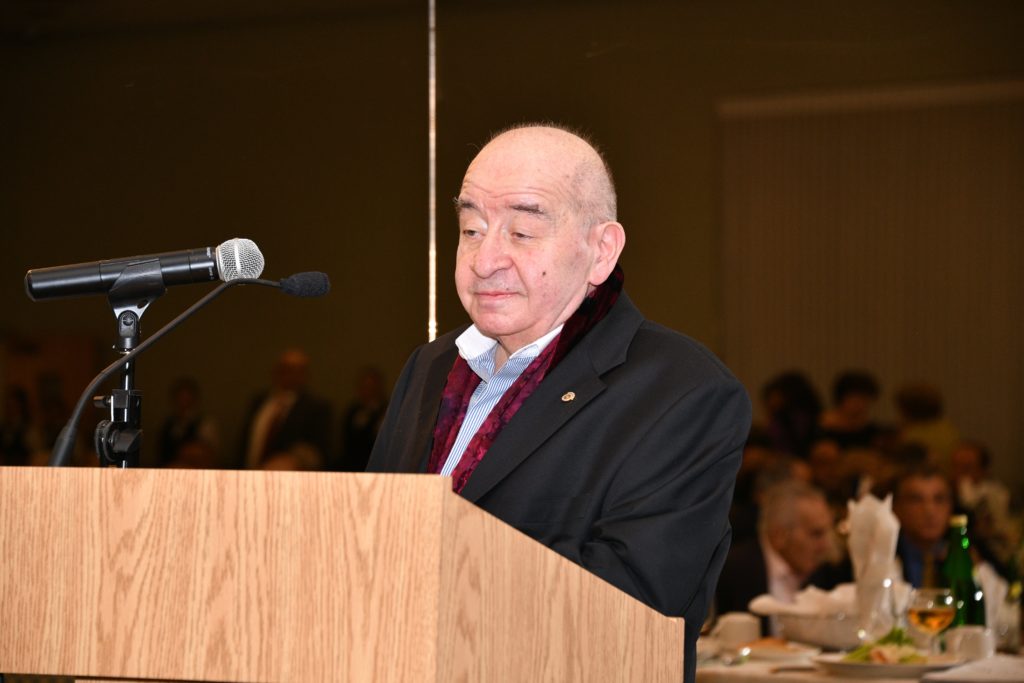
Dr. Vartan Abdo served as master of ceremonies at the well-attended event. Very Rev. Fr. Sahag Yemishian, gave the invocation, while guests were welcomed by Hirant Gulian, banquet chairman and organizer.Gulian said, “People often ask me why are you so ardently working for the recognition of the Armenian Genocide. The Republic of Turkey will never recognize it.” He said that he would respond, “Nothing pursued, nothing gained. …The world will forget the Armenian Genocide only if we let them forget. Our cause is alive, we are alive, and we are determined to achieve our goal and believe me, we will.”
As part of this effort, Gulian stated, “Today we have translated [Akçam’s 2018 book] Killing Orders into 10 languages. There are 5 more to go. That means over 800 million people have the opportunity to read Killing Orders in their respective languages. Our goal is to reach four billion people – b for billion — by 2021, and without your help, we cannot do it.” This outreach will include India, China and Japan. He said he believed that the day was coming when the Republic of Turkey would recognize the Armenian Genocide.
Gulian announced that Dikran Cherchian, 99-years-old, was present. He is the son of Vahram Cherchian, who taught art classes in the American Robert College in Istanbul and created the famous signature of Mustafa Kemal Atatürk. Cherchian came to the stage to congratulate Akçam in person.
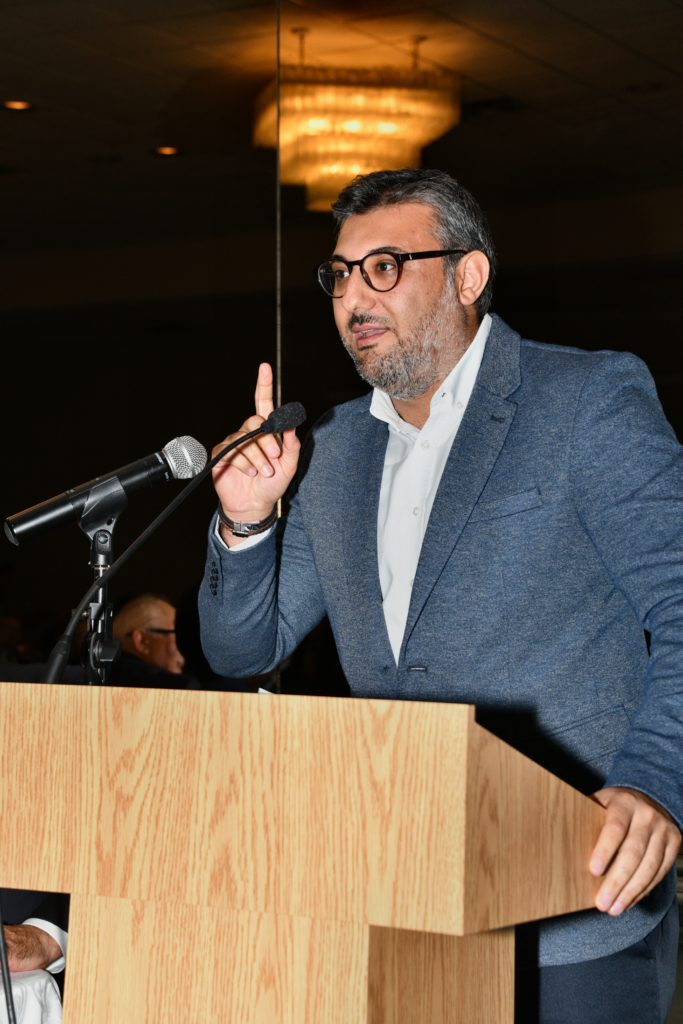
Honoring Legacies of Andonian and Guerguerian



